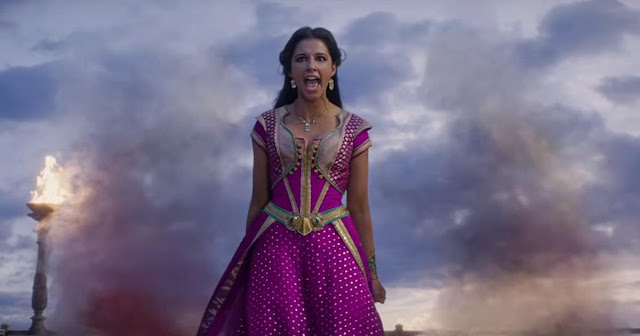Review: The Golden Princess
Whether it's books, television, or film, when a series goes on for too long, it reaches a point where it loses its charm. The Golden Princess is that point for me in the Return to the Four Kingdoms series. While too much exposition can be trite, this book didn't have enough. It starts out with the main character, Zaria, working as a servant and provides very little explanation as to why, expecting readers to recall the events of The Desert Princess, which came out over a year prior. Zaria was once the daughter of a vizier, but he turned evil or got murdered by someone evil who impersonated him, and she was sent away because of that even though I'm not sure why that would be her fault in any way. For some reason that wasn't fully explained, she wasn't able to contact her friends from her previous life and tell them what happened. There were so many things in this book that were only half explained that I couldn't relate to Zaria's struggles or understand what her goals were at all.
The Golden Princess has some interesting ideas, such as an enchanted treasure cave reminiscent of the Cave of Wonders, but it never takes the time to fully flesh them out. Instead of a suspenseful action sequence like the one where Aladdin must escape the lava filling the cave, Zaria talks about how she's suspicious of the treasure but allows her companions to take it anyway, and it takes a long time for anything to come of it as a result. Much of this is due to the story of "Ali Baba" being more convoluted than "Aladdin" with an overabundance of characters. I was not particularly familiar with that fairy tale before reading this book, and now I can see why it isn't that popular. There are no clear stakes, no clear villain, and no clear direction that the story is going.
Being a princess book, there is a prince and a love story, but even that feels shoehorned in since it was not part of the story of "Ali Baba." Melanie Cellier did something similar by adding a prince in her Spoken Mage series that didn't quite fit into the main plot. Like Andrew Lloyd Webber's Cinderella, Zaria was childhood friends with Prince Tarek, and their unexpected reunion forces them to eventually admit their feelings for each other. All of Melanie Cellier's books contain romance, and this is one of the weakest, possibly due to being one of the only love stories that wasn't part of the original fairy tale that was adapted. Tarek's character further convoluted the story by adding another name to remember. The obligatory royal ball and fancy dress scenes seemed like they were included only to satisfy expectations about the princess genre.
Though hardcore fans of "Ali Baba and the Forty Thieves" or 1,001 Arabian Knights might find this adaptation interesting, I don't know anyone who resides in that particular camp. As is, this book feels like a first draft with too many characters, plot threads, and missing pieces of exposition to be fully enjoyable. I cannot blame all of that on the author since I think a good deal of my issues may be attributed to the source material itself. If you are looking for a good fairy tale adaptation, I recommend skipping this one and turning to one of Melanie Cellier's other books. The Secret Princess is a particular favorite of mine.












Comments